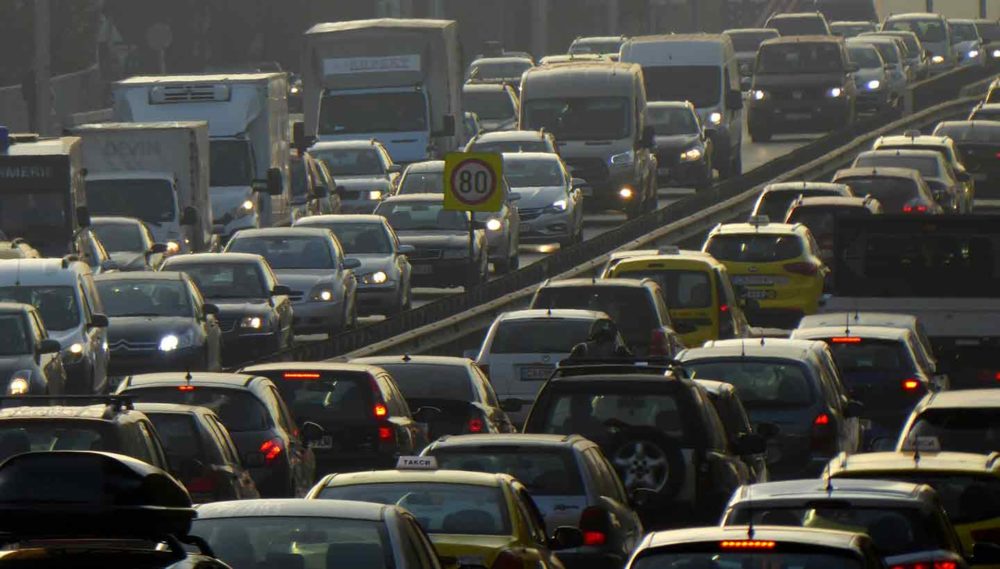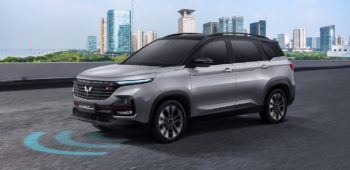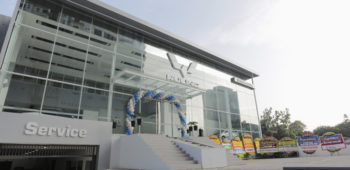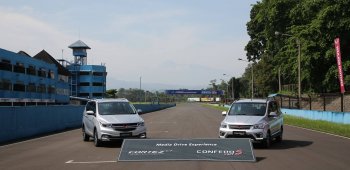What is a Contraflow System & Tips for Safe Driving in This Area
30 March, 2024

The contraflow system is a strategy used to manage traffic in several big cities. However, a thorough understanding of the contraflow system and how it works is essential for road users. This article discusses the meaning of the contraflow system, tips for driving in it, the regulation scheme, as well as the differences with other systems such as one way and odd-even.
Understanding Contraflow Systems
The contraflow system is a traffic management method that aims to increase road capacity by utilizing opposite-direction lanes. In a contraflow system, this means that one or more lanes are directed in the opposite direction from the normal direction. This is done to optimize the use of available road space, especially during heavy traffic.
Contraflow Scheme
Contraflow schemes are usually implemented when traffic jams are severe or vehicle volumes are high. This application takes into account the density of travelers on the road.
If the reverse flow turns out to exceed 5,500 vehicles, contraflow will be implemented. If there are more than 6,000 vehicles, two-lane contraflow will be implemented. Meanwhile, if there are 7,000 cars and above, a three-lane contraflow will be implemented.
Contraflow schemes can vary depending on the needs and traffic conditions in an area. Some commonly used schemes include:
-
Temporary Dividers
Contraflow lane arrangements can use temporary dividers or temporary construction to separate traffic directions.
-
Reversal of Direction
This contraflow scheme diverts traffic direction on certain routes temporarily, such as on toll roads or main arterial roads.

Tips for Driving on a Contraflow System
Contraflow systems are usually used in situations such as road repairs, accidents, or other emergencies. Driving on a contraflow system requires special attention and adjustment from the driver to ensure safety for all road users. Here are some tips for riding in a contraflow system:
Follow Traffic Directions
Pay attention to traffic instructions and signs clearly posted by traffic authorities. Follow the officer’s directions and have traffic signs installed around the contraflow lane. This includes directional signs, road markings, and traffic signs that indicate the correct direction for you to follow.
Maintain a Safe Distance
Maintaining a safe distance when driving on a contraflow system is very important because these situations tend to be more complex and have the potential to increase the risk of accidents. When driving, the driver must always maintain a greater than usual safe distance from the vehicle in front to provide anticipation space in the event of sudden braking.
In a contraflow system, the direction of traffic on the same lane is changed to accommodate emergencies or road repairs. This can cause sudden changes in traffic patterns that can take drivers by surprise and take them longer to react.
Pay Attention to Nearby Vehicles
Drivers around you may need to make unexpected maneuvers, such as changing lanes or slowing down. Paying attention to nearby vehicles can help you anticipate their actions and take appropriate steps to avoid accidents. Always be aware of vehicles around you, especially when changing lanes. Use turn signals and signal clearly before maneuvering.
Use Vehicle Safety Features
In a contraflow system, traffic density tends to be higher because all vehicles must share the same lane. Therefore, take advantage of the safety features in your vehicle.
Advanced technological safety features such as Safe Distance Warning (SDW) and Forward Collision Warning (FCW) on the Wuling Alvez can increase awareness when changing lanes, reducing the risk of accidents. Using this safety feature can help drivers monitor nearby vehicles and avoid fatal accidents while driving when encountering a contraflow system.

Difference Between Contraflow and One Way
Although similar in concept to diverting traffic direction, a contraflow system is different from a one-way system. In a contraflow system, traffic direction is diverted temporarily and usually occurs in certain situations, such as heavy traffic or road repairs. Meanwhile, the one way system is a permanent arrangement where one lane can only be used for one direction of traffic.
| Aspect | Contraflow | One Way |
| Speed Direction | Opposite normal direction in one or two lanes | One way in all lanes |
| Duration | Temporary, usually during severe traffic jams | Can be permanent or temporary |
| Objective | Dealing with Traffic | Regulates traffic in certain areas |
Difference Between Contraflow and Odd-Even
The contraflow system is also different from the odd-even policy implemented in traffic management. Odd-even is a policy where vehicles are only allowed to pass on certain days based on the vehicle plate number. Meanwhile, contraflow involves diverting traffic directions to increase road capacity.
| Aspect | Contraflow | One Way |
| Speed Direction | Opposite normal direction in one or two lanes | One way in all lanes |
| Duration | Temporary, usually during severe traffic jams | Temporary, based on odd/even dates |
| Objective | Dealing with Traffic | Reduce emissions and air pollution |
Contraflow systems can help overcome serious traffic jams, but it is important to always be careful and follow tips when driving in these lanes. The advanced features on the Wuling Alvez car can help increase safety and comfort when driving in various situations.
By understanding the concept, following traffic instructions, maintaining a safe distance, and utilizing vehicle safety features, you can drive more confidently and comfortably in a contraflow system. Remember that safety is the shared responsibility of car users on the road.



